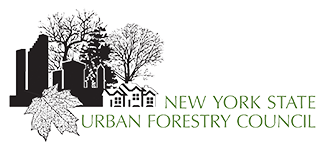New York State DEC Interim Commissioner Sean Mahar announced nearly $2 million awarded to SUNY College of Environmental Science and Forestry (ESF) to help identify, model and map urban heat islands, to assess extreme heat impacts and responses and to support climate actions to address urban heat island effects and extreme heat in disadvantaged communities across the state.

“Extreme heat events are becoming more frequent in New York State and across the country, significantly impacting our environment and contributing to risks to public health, particularly in disadvantaged communities,” says Mahar. “DEC is pleased to join with SUNY ESF to advance this critical study.”
The SUNY College of Environmental Science and Forestry (ESF) is dedicated to the study of the environment, developing renewable technologies, and building a sustainable and resilient future through design, policy, and management of the environment and natural resources.
Members of the College community share a passion for protecting the health of the planet and a commitment to the rigorous application of science to improve the way humans interact with the world. The College offers academic programs ranging from the associate of applied science to the Doctor of Philosophy. ESF students live, study and do research on the main campus in Syracuse, N.Y. and on 25,000 acres of field stations in a variety of ecosystems across the state. The project will be led by Dr. Endreny, a professor in ESF’s Department of Environmental Resources Engineering.
“The use of urban forests and their green cooling services is needed now more than ever to protect vulnerable communities from deadly heatwaves,” according to ESF President Joanie Mahoney. “By combining the efforts of ESF researchers using the i-Tree Cool Air model and leveraging the DEC’s expertise, we are committed to creating practical solutions that protect the health and well-being of all New Yorkers.” The project helps fulfill legislation signed in 2022 directing DEC to study the impacts of disproportionate heat conditions in disadvantaged communities and implements recommendations in the recently released Extreme Heat Action Plan.
For more information about the Extreme Heat Action Plan, visit DEC’s website and watch the webinar recording with State agencies that provides an overview of the plan.

